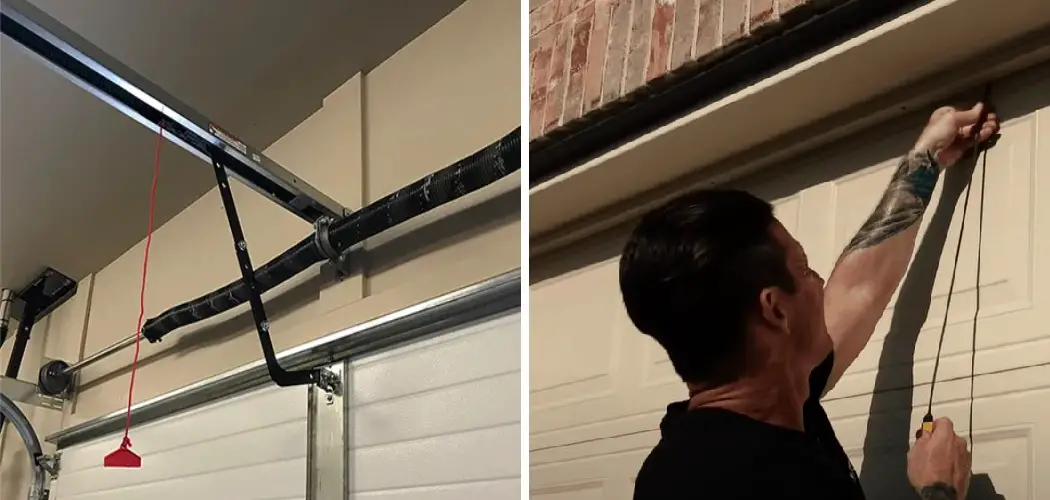In today’s world, garage doors are integral to our homes, providing convenience and security. However, situations such as power outages or malfunctioning openers can leave homeowners in a bind, highlighting the necessity of knowing how to open garage without power from outside.
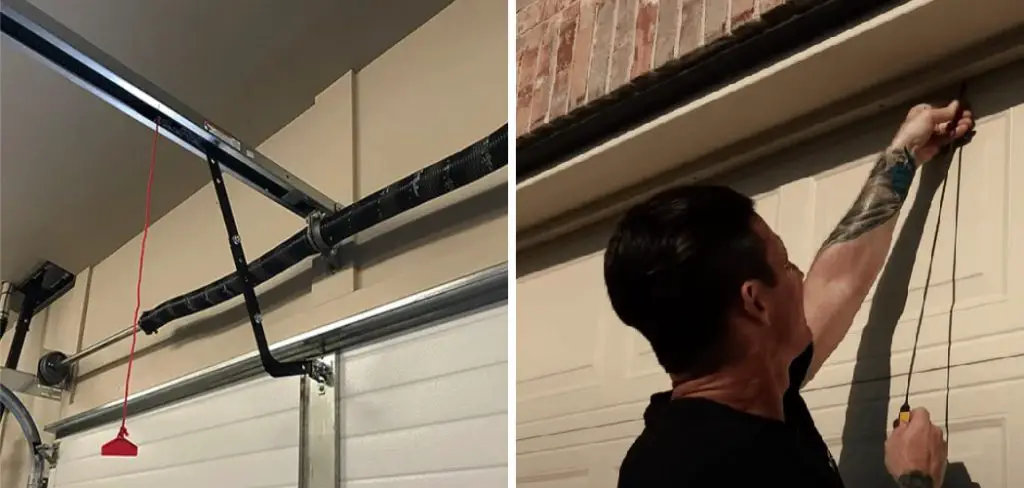
Understanding various methods to access your garage under these circumstances is essential for convenience and emergencies, such as quick evacuations or accessing important items during a crisis. This article will explore several effective techniques, including using the manual release cord, keyed locks, service doors, and emergency access kits. By familiarising yourself with these methods, you can ensure seamless entry to your garage even when conventional access is unavailable, enhancing both the functionality of your home and your peace of mind.
Using the Manual Release Cord
Locate the Manual Release Cord
The manual release cord is critical for most garage door openers, allowing homeowners to disengage the automatic mechanism during power outages or malfunctions.
Typically identified by its distinctive red color, this cord hangs from the garage door opener assembly, positioned near the trolley that connects the door to the opener’s drive system. The accessibility of the manual release cord is designed for ease of use, ensuring that homeowners can quickly locate and utilize it when necessary.
Manually Disengaging the Opener
To disengage the garage door opener, gently grasp the manual release cord and pull it straight down. This action releases the trolley from its locked position, allowing the garage door to be operated manually.
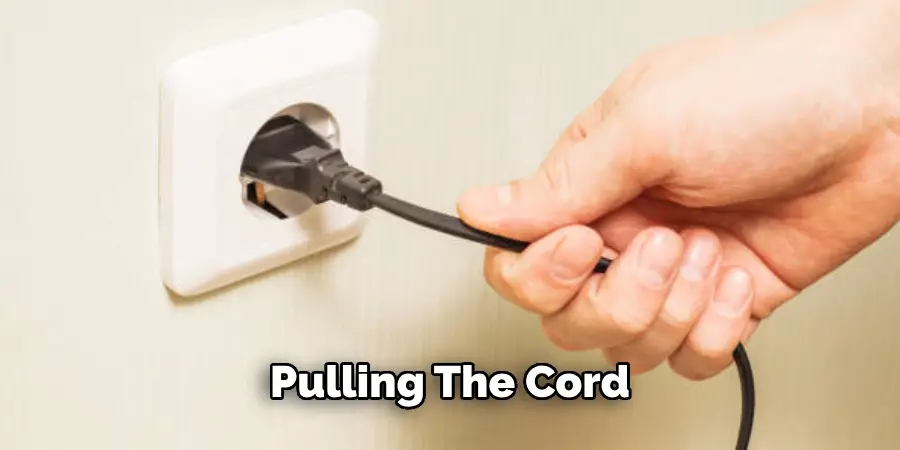
Pulling the cord with a steady motion is essential to ensure that the connection between the door and the opener is fully disengaged. Once the opener is disengaged, you should hear a click, confirming that the door can now be lifted by hand without the motor’s assistance.
Manually Opening the Door
Once the garage door is disengaged, you can lift it manually. Stand to the side of the door and grasp it firmly with both hands, ensuring you lift evenly. It is crucial to be cautious during this process, as garage doors can be heavy and may cause injury if not handled correctly.
If the door feels particularly heavy or difficult to lift, consider seeking assistance to avoid damage to the door or injury. Always raise the door slowly and steadily to maintain control as you open it fully.
How to Open Garage without Power from Outside: Accessing the Garage Door from the Outside
Using the Keyed Lock (If Available)
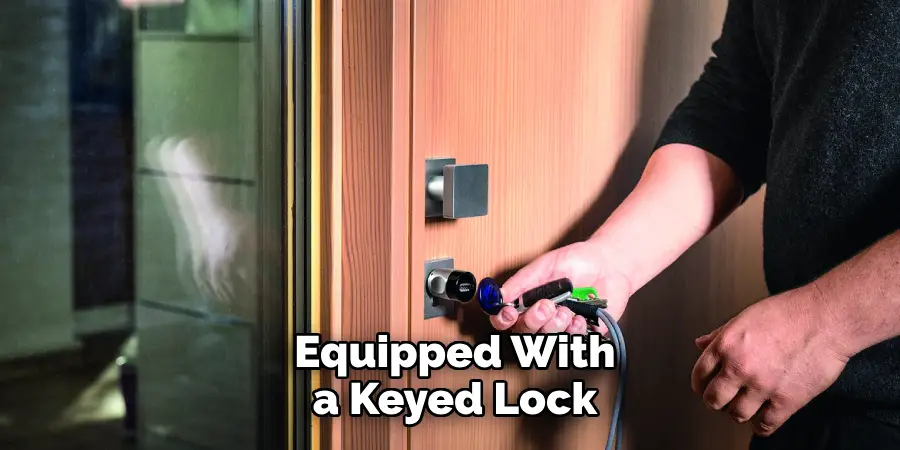
Many garage doors come equipped with a keyed lock on the exterior, providing an alternative entry point in case of a power failure or opener malfunction. This lock is typically found on the garage door itself or on the adjacent wall near the door frame. To access your garage using the keyed lock, first locate the lock and insert the appropriate key.
Turn the key clockwise to unlock the mechanism; you should hear a click indicating it is disengaged. Once unlocked, pull the handle to lift the door manually. Ensure that the door operates smoothly and check that there are no obstacles before fully opening the door.
Using a Side Door or Service Door
If your garage is equipped with a side door or service door, this can serve as an effective access point during emergencies. First, locate the service door, typically on the side or back wall of the garage. Before opening the door, check for any security measures, such as additional locks or latches, and ensure the area is clear of obstructions.
To open the door, unlock it using the key or combination code if applicable. Once unlocked, gently pull or push the door to open it, being mindful of any items or obstacles on the other side. Entering through a service door provides immediate access to the garage and ensures that you remain within a secure environment.
How to Open Garage without Power from Outside: Using an Emergency Access Kit
What is an Emergency Access Kit?
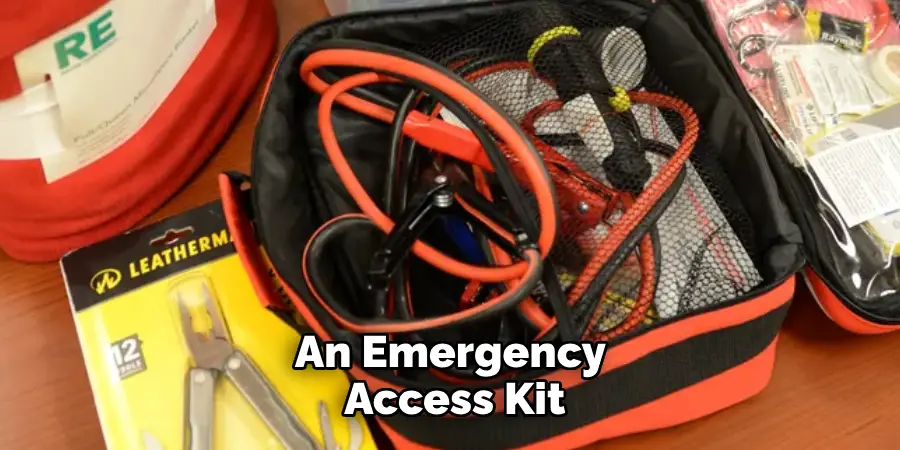
An emergency access kit is a valuable tool designed for garage door systems that allows homeowners to manually open their garage door from outside during power outages or when the automatic opener is malfunctioning. Typically, these kits include a lockable key system and a mechanism that attaches to the garage door, providing a secure and reliable alternative to access your garage without the need for electricity.
They are especially beneficial for those who might need quick entry during emergencies or for accessing the garage when conventional methods are unavailable, ensuring peace of mind for homeowners.
Installing and Using the Kit
To install the emergency access kit, follow the manufacturer’s instructions for your specific kit. Generally, the installation process involves attaching the kit to the garage door at the recommended height, often near the manual release mechanism. Ensure that it is securely fastened to prevent any movement during operation.
Once installed, connect the kit’s mechanism to the manual release cord, allowing for functionality that enables the disengagement of the door from the outside. When you need to use the kit, simply insert the provided key into the lock and turn it to release the mechanism, which will disengage the door so you can lift it manually.
Testing the Kit
Regularly checking the functionality of your emergency access kit is essential to ensure that it operates effectively when needed. At least twice a year, test the kit by following the operation procedure to confirm that the lock engages and disengages smoothly and that the mechanism allows for the garage door to be opened without resistance.

Additionally, ensure that the area around the kit is free from obstructions and that the garage door operates correctly. Conducting these routine tests will help guarantee that you are prepared for any unexpected power failures or emergencies, maintaining easy access to your garage.
Checking and Maintaining External Access Points
Regular Inspection
Regular inspection of external locks, keypads, and access points is crucial for ensuring the security and functionality of your garage.
Over time, weather conditions, wear and tear, and mechanical issues can compromise access points. By regularly checking these components, homeowners can identify potential problems early, thereby preventing inconvenient situations where garage access may be hindered. Routine maintenance keeps your garage secure and extends the lifespan of these locking mechanisms.
Repair or Replacement
Knowing when to repair or replace malfunctioning external access points or emergency access kits is important. If a lock is difficult to operate or a keypad fails to respond consistently, these are clear indicators that repair or replacement is necessary.
Any signs of physical damage, rust, or corrosion should prompt an immediate assessment. Ensuring these systems are working properly is essential for reliable operation during power outages or emergencies, giving homeowners peace of mind that their garage remains accessible when needed.
Using a Manual Override
Understanding Manual Overrides
Many modern garage door openers have a manual override feature, allowing homeowners to access their garages even when the automatic system is non-functional due to power outages or mechanical failures. This feature can usually be accessed from outside the garage or through an inside mechanism. Understanding how to engage this override is essential for ensuring reliable access during emergencies and providing peace of mind for homeowners.
Accessing and Using the Override
To use the manual override, locate the manual release cord, which is typically red, hanging from the garage door opener mechanism. If accessing from outside, you may need to unlock the garage door with a key or a keypad first. Pull the release cord to disengage the opener, allowing you to manually lift the garage door. Ensure you do this carefully to maintain control of the door while fully opening it.
When to Call a Professional
Persistent Issues
If you encounter persistent issues with your garage door or opener, it’s crucial to seek professional assistance. Signs that warrant a call include the inability to open the door manually, unusual noises during operation, or inconsistent failure of access methods, such as keypads or emergency kits.
Attempting to resolve complex mechanical issues without expertise can lead to further damage or personal injury, so it’s best to rely on a qualified technician.
Upgrading the System
If you frequently need to manually operate your garage door, it may be time to consider an upgrade to your garage door opener system.
Modern systems often have improved access solutions, such as smart technology and enhanced security features. These upgrades provide convenience during emergencies and improve overall reliability, ensuring your garage remains accessible and secure regardless of power or mechanical issues.
Conclusion
In summary, knowing how to open garage without power from outside is essential for homeowners who wish to maintain access during unexpected situations. Key methods include utilizing the manual release on the garage door opener, employing keyed locks, accessing service doors, and installing emergency access kits. Regular inspections and maintenance of these systems are critical to ensure their functionality when needed.
Homeowners should habitually check their garage’s external access points and manual release mechanisms at least twice a year to safeguard against potential failures. Understanding these methods enhances your preparedness for power outages and provides peace of mind, knowing that you can always access your garage, regardless of the circumstances. By prioritizing these practices, you can ensure your garage remains a reliable space whenever needed.
I am Rick. I grew up helping my dad with his handyman service. I learned a lot from him about how to fix things, and also about how to work hard and take care of business. These days, I’m still into fixing things- only now, I’m doing it for a living.
I’m always looking for new ways to help people grow and develop. That’s why I have created this blog to share all my experience and knowledge so
that I can help people who are interested in DIY repair.

